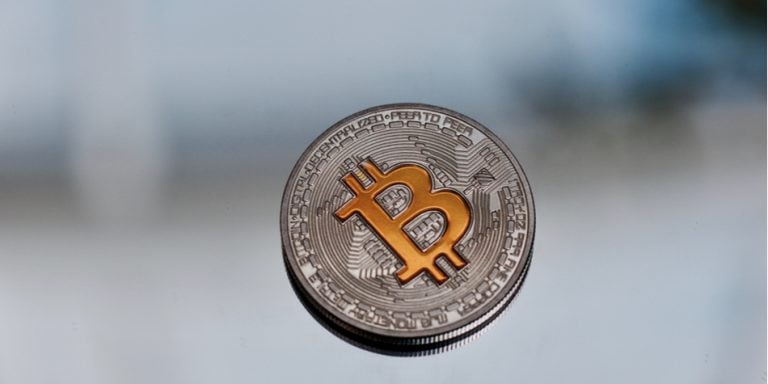It was too good to be true, and the sudden volatility in the cryptocurrency markets proved it. For the last few weeks, bitcoin and the alternative cryptocurrency (or altcoin) sector enjoyed relative stability. Bullish proponents dared to dream, hoping for an imminent recovery. But optimism quickly faded over the weekend with a so-called bitcoin hack.
In reality, the original blockchain token may not have been affected by a security breach at a South Korean exchange. According to a recent Reuters report, hackers targeted a crypto-trading platform called Coinrail. The company issued a statement early Monday disclosing that it had lost approximately 30% of cryptocurrencies traded on the platform.
As with any serious controversy involving the blockchain, the virtual markets responded with unmitigated panic. At time of writing, only two tokens, veritaseum and tether, traded in positive territory from 24 hours earlier. However, tether is technically not an investment asset, but a hedge to secure cryptocurrency profit in a virtual-currency format.
Unfortunately, ignorance is getting the best of investors. While this incident may appear as a bitcoin hack, CNBC reports that obscure altcoins such as Pundi X were impacted. Coinrail has yet to issue a public statement confirming bitcoin theft.
So if this exchange breach isn’t a bitcoin hack, why did bitcoin and other major altcoins stumble?
Cryptocurrencies Are Extremely Young
While I’ve advocated cryptocurrencies as the next innovation in investing, I must concede one risk factor: these markets are extremely young. Youth typically has a positive connotation, and even for virtual currencies, this remains largely true. However, the lack of maturity means that stakeholders often overreact.
Here’s another fact to chew on: the Coinrail exchange is a minnow compared to a Coinbase or Kraken. And as a small South Korean exchange, they don’t provide English translations for their public statements. A security breach here, even if it was a bitcoin hack, shouldn’t overly influence international markets.
Yet it did exactly that, and here are two reasons why. First, when you’re trading cryptocurrencies, you’re probably not trading against too many people older than 40. Younger folks simply lack the life experience to deal with both bull and bear markets. Their overreaction demonstrates this flaw.
Second, as Bloomberg reported, retail investors
dominate the crypto markets. They generally don’t possess much experience. Rather, they’re average people, and average people get scared, plain and simple.
Affected Coins Will Likely Be “Frozen”
One of the most common criticisms you’ll hear about bitcoin is that a bitcoin hack would forever ruin its credibility. Invariably, such attacks would catalyze an intractable panic. Bitcoin will eventually turn into vapor.
On surface level, such accusations make virtual currencies appear completely speculative, teetering on the brink of total disaster. I will never argue that bitcoin is as stable as a mutual fund based on the Dow Jones Industrial Average. Anyone with functioning eyes can see that cryptocurrencies trade at breakneck speeds and can turn on a dime.
However, it’s also fair to point out that the crypto community is evolving for the better. And in this South Korean hacking incident, crypto-exchange administrators worldwide will likely “freeze” the impacted coins.
Earlier this year when Japan’s Coincheck suffered a hack attack, the company lost millions of dollars worth of NEM. In response, several exchanges suspended NEM trading to stymie the hackers attempt to sell “hot” cryptos.
While this was a voluntary action, it does prove that the crypto sector isn’t completely lawless. Thus, a bitcoin hack wouldn’t automatically spell doom and gloom.
What Exactly Is a Bitcoin Hack?
Make no mistake: the Coinrail attack is no trivial matter. The incident once again underscores the fragility of this otherwise groundbreaking blockchain innovation. However, some mainstream media sources are doing a disservice to public investors through fear-mongering.
Primarily, we have a misunderstanding about the term “bitcoin hack.” Almost always, when the public hears about a bitcoin hack, it’s referring to an exchange hack. Technically, these two concepts are miles apart.
An exchange hack is an attack against a market where individual investors trade cryptocurrencies. A bitcoin hack is an attack against bitcoin’s core data integrity. Otherwise known as a 51% attack, a genuine bitcoin hack would cripple the cryptocurrency because one entity would control the majority supply.
Theoretically, a successful 51% attack would enable the hacker to reverse or otherwise modify transactions.
We recently witnessed this very thing occur with the verge altcoin. The blockchain project’s development team found it impossible to undo the mess. Having no choice, they initiated a hardfork.
That said, it’s probably excruciatingly difficult (and expensive) to launch a true bitcoin hack. Unfortunately, sector youth, combined with other negative news items, caused retail investors to panic out of bitcoin and other tokens.
As of this writing, Josh Enomoto is long bitcoin and verge.

